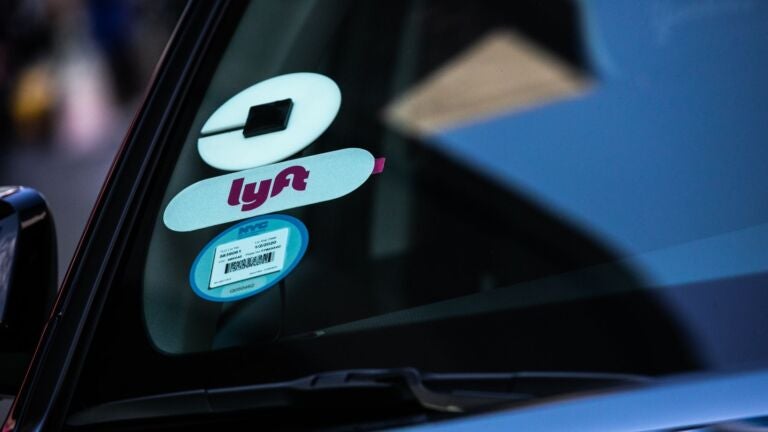Newsletter Signup
Stay up to date on all the latest news from Boston.com

A proposed ballot question would put it in the hands of Massachusetts voters to decide whether gig economy workers should be made employees or remain independent contractors.
Companies like Uber, Lyft, DoorDash, and Instacart are trying to get a question on the ballot this November that would legalize keeping their drivers as independent contractors and not regular employees if the majority votes yes on the question.
The ballot question comes in reaction to a lawsuit from Massachusetts Attorney General Maura Healey last year that alleges tech companies are violating Massachusetts wage and hour laws by not classifying their workers as full employees.
Those in favor of the ballot question argue that allowing drivers to be independent contractors ensures flexibility in their work hours and allows workers to be their own managers.
Lyft driver Charles Clemons told NBC 10 Boston’s Allison King that he supports the ballot questions because he wants to keep his current lifestyle.
“You get to choose when you want to work, how you gonna work,” he said.
But a coalition of labor groups have formed a group in opposition to the ballot question called Massachusetts is not for Sale.
The group argues that the tech companies behind the ballot question want to get out of paying for benefits such as sick time and paid leave by not classifying gig economy workers as employees.
The group argues that gig economy workers are losing out on the rights they would have as employees and that there’s nothing stopping the tech companies from allowing workers to have the same flexibility they have now as independent contractors after being made employees.
“These platforms want to undermine rights for more than drivers like me who are their employees,” Fatih Dinler, a Boston resident and rideshare driver, told State House News Service (SHNS).
“They are also trying to divide workers by forcing us to make false choices between flexibility and safety; between flexibility and health; between flexibility and the ability to earn a living wage.”
Massachusetts is not for Sale has brought 7th Congressional District Rep. Ayanna Pressley onboard the campaign to help the cause.
SHNS reported that a recent survey of Massachusetts gig economy drivers found that eight of every 10 drivers would prefer to remain independent contractors because they prefer the flexibility that comes with being their own managers.
Notably, SNHS reported, the poll was commissioned by Flexibility and Benefits for Massachusetts Drivers — the organization behind the ballot initiative.
SNHS also reported that the tech companies behind the 2022 ballot effort spent over $200 million in California to pass a similar initiative, and already have already spent $17.2 million in Massachusetts last year.
The initiative still needs to get more signatures to be able to appear on the Massachusetts ballot in November, but the campaign has months to get those signatures.
Stay up to date on all the latest news from Boston.com
Stay up to date with everything Boston. Receive the latest news and breaking updates, straight from our newsroom to your inbox.
Conversation
This discussion has ended. Please join elsewhere on Boston.com